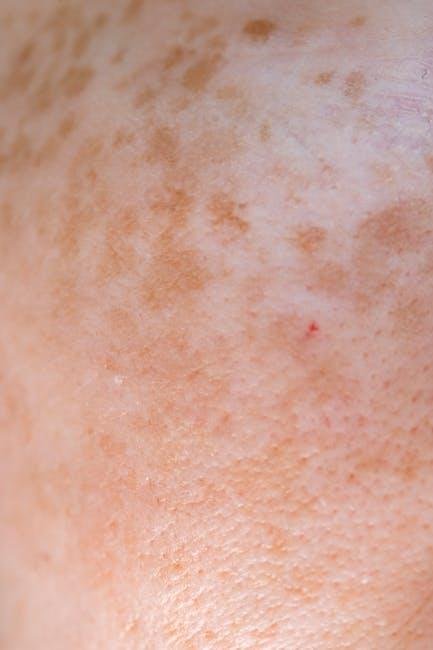In a world where self-care has become synonymous with wellness, the quest for the perfect skincare regimen often leads us down a winding path of ingredient lists, buzzwords, and promises that gleam just as brightly as the bottles they come in. Natural skincare products, with their alluring images of lush botanicals and earth-derived ingredients, offer a compelling choice to their synthetic counterparts. But amid the clamor of marketing and personal testimonials, one pressing question remains: Are natural skincare products genuinely better for you? As we delve into this nuanced topic, we will explore the benefits, drawbacks, and scientific insights surrounding natural versus conventional skincare, inviting you to consider not just what you put on your skin, but the broader implications for your health and the planet. Join us on this enlightening journey to uncover the truth behind the labels and discover what really makes a skincare product worthy of a spot in your daily routine.
Exploring the Science Behind Natural Ingredients
Natural ingredients have become a focal point in the skincare industry, captivating consumers with their promise of gentleness and effectiveness. Scientific research increasingly supports the efficacy of these botanicals, revealing that many can deliver potent benefits thanks to their rich composition of vitamins, minerals, and antioxidants. For instance, essential oils such as lavender and tea tree are not only fragrant but also possess antimicrobial properties, making them effective in combatting acne and inflammation. Furthermore, plant-based oils like jojoba and argan mimic the skin’s natural sebum, providing moisture without clogging pores, which is often a concern with synthetic products.
The exploration of natural components often leads to the revelation of unique compounds that enhance skin health. Here are some standout natural ingredients known for their remarkable qualities:
- Aloe Vera: Known for its soothing and hydrating properties, perfect for irritated skin.
- Green Tea: Rich in antioxidants, it helps combat oxidative stress and promote youthful skin.
- Shea Butter: A deeply moisturizing ingredient that nourishes and protects the skin barrier.
- Honey: An antibacterial agent that also serves as a humectant to attract moisture.
To better understand the benefits these natural ingredients can offer, consider the following comparison:
| Ingredient | Key Benefit | Common Use |
|---|---|---|
| Aloe Vera | Soothes and hydrates | Moisturizers, gels |
| Green Tea | Antioxidant-rich | Face masks, serums |
| Shea Butter | Deeply moisturizing | Lotions, creams |
| Honey | antibacterial | Cleansers, masks |

The Environmental Impact of Choosing Natural Skincare
Choosing natural skincare products goes beyond personal health; it extends to the well-being of our planet. many conventional skincare brands rely on synthetic ingredients and harsh chemicals that can wreak havoc on the environment. These substances often end up in our waterways,damaging aquatic ecosystems and wildlife.In contrast, natural skincare options are typically formulated with renewable ingredients sourced from plants and minerals, minimizing their ecological footprint. By opting for products with eco-friendly packaging, consumers can further reduce waste and support brands committed to sustainability.
Moreover, the cultivation of natural ingredients often promotes biodiversity and enduring farming practices. Many natural skincare brands prioritize ethical sourcing, ensuring that their ingredients come from farms that utilize organic methods, thus avoiding harmful pesticides and fertilizers. This not only helps in maintaining healthy soil and ecosystems but also supports local communities. When transitioning to natural skincare,consumers may find themselves participating in a larger movement toward conscious living,which emphasizes environmental responsibility and the interconnectedness of our choices with the health of our planet.

Understanding Skin Types and Their Response to Natural Products
Every individual’s skin possesses unique characteristics that dictate its response to various products, including natural skincare formulations. understanding your skin type is essential for selecting the right ingredients that can enhance your skincare routine. The primary skin types include:
- Normal: Balanced,with a healthy amount of oil and moisture.
- Dry: Lacking in moisture, often feeling tight or rough.
- Oily: Excess oil production, leading to shine and potential breakouts.
- Combination: Exhibiting characteristics of both oily and dry skin.
- Sensitive: Easily irritated, prone to redness or allergic reactions.
Natural products often employ botanical extracts and gentle oils, which can harmonize more effectively with the skin’s natural balance. Such as, while aloe vera is renowned for its soothing properties and is well-tolerated by sensitive skin, jojoba oil can mimic the skin’s natural sebum, making it suitable for both dry and oily skin types. Below is a simplified overview of how various natural ingredients align with common skin types:
| Skin Type | Best Natural Ingredients |
|---|---|
| Normal | Aloe vera, Coconut Oil |
| Dry | Shea Butter, Avocado Oil |
| Oily | Tea Tree Oil, Witch Hazel |
| Combination | Jojoba Oil, Rosehip Oil |
| Sensitive | Chamomile, Calendula |

Practical Tips for Transitioning to a Natural Skincare Routine
Making the shift to a natural skincare routine can be both exciting and daunting. To ease this transition, start by gradually incorporating products that contain naturally derived ingredients.Look for labels that highlight botanical extracts, essential oils, and naturally occurring vitamins. Here are a few tips to help you get started:
- Assess your current routine: Determine which products you use daily and identify any that could be replaced with natural alternatives.
- Do your research: Familiarize yourself with natural ingredients and their benefits, such as aloe vera for soothing skin or tea tree oil for fighting acne.
- Patch test new products: Always perform a patch test with any new skincare item to ensure it doesn’t cause irritation.
As you progress, consider creating a simple skincare calendar to track the introduction of new products. This could help you systematically replace conventional items while monitoring how your skin reacts.Here’s a basic template to visualize your transition:
| Week | Product to Replace | Natural Alternative |
|---|---|---|
| 1 | Cleanser | Gentle Botanical Cleanser |
| 2 | Moisturizer | Coconut Oil or Shea Butter |
| 3 | Exfoliant | Brown Sugar Scrub |
Emphasizing simplicity and mindfulness will help in minimizing overwhelm and allow your skin to adjust to these changes naturally. Listening to your skin’s needs is crucial, and with patience and care, you can cultivate a truly nourishing routine that aligns with your values.
Concluding Remarks
In wrapping up our exploration of natural skincare products, it’s clear that the conversation around what constitutes “better” is nuanced and deeply personal. While many advocate for the pure and uncomplicated ingredients found in nature, others champion the effectiveness of scientifically formulated products. What matters most is finding a regimen that resonates with your skin type, values, and lifestyle.
As you embark on your own journey toward healthier skin, consider the ingredients, ethical practices, and your unique needs. Whether you choose to swipe on a pot of organic cream or a lab-crafted serum, the best skincare routine is one that nurtures not just your skin, but also your well-being and environment. Ultimately, the decision lies with you—armed with knowlege, intuition, and perhaps a little bit of curiosity about what’s truly best for your body. So go ahead, experiment, and uncover the products that harmonize with you, as in the world of skincare, there’s always room for a little personal touch.

